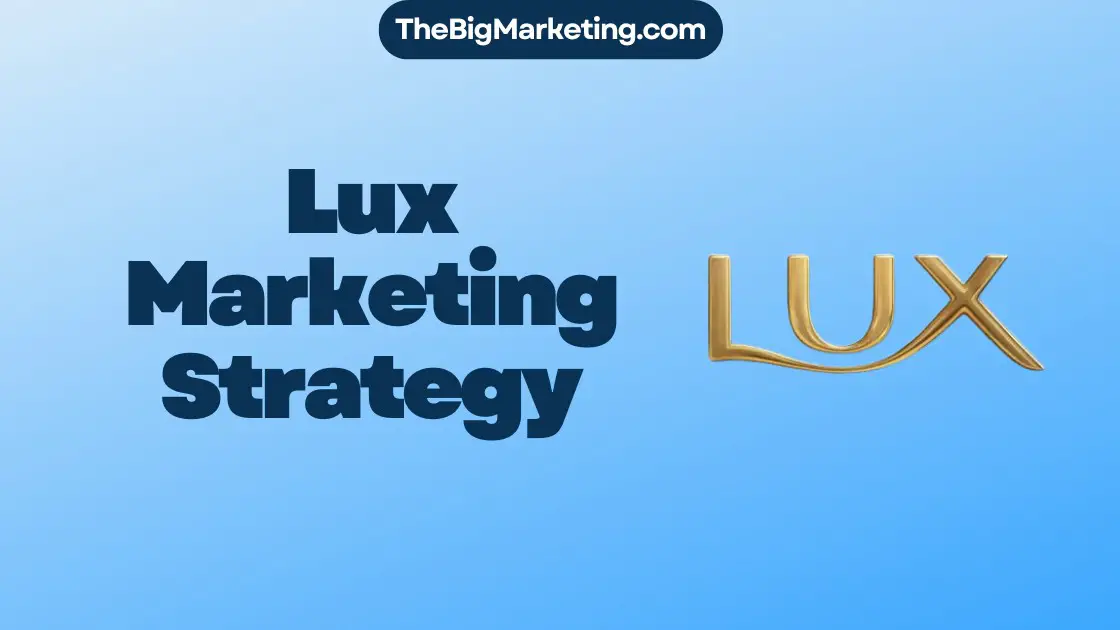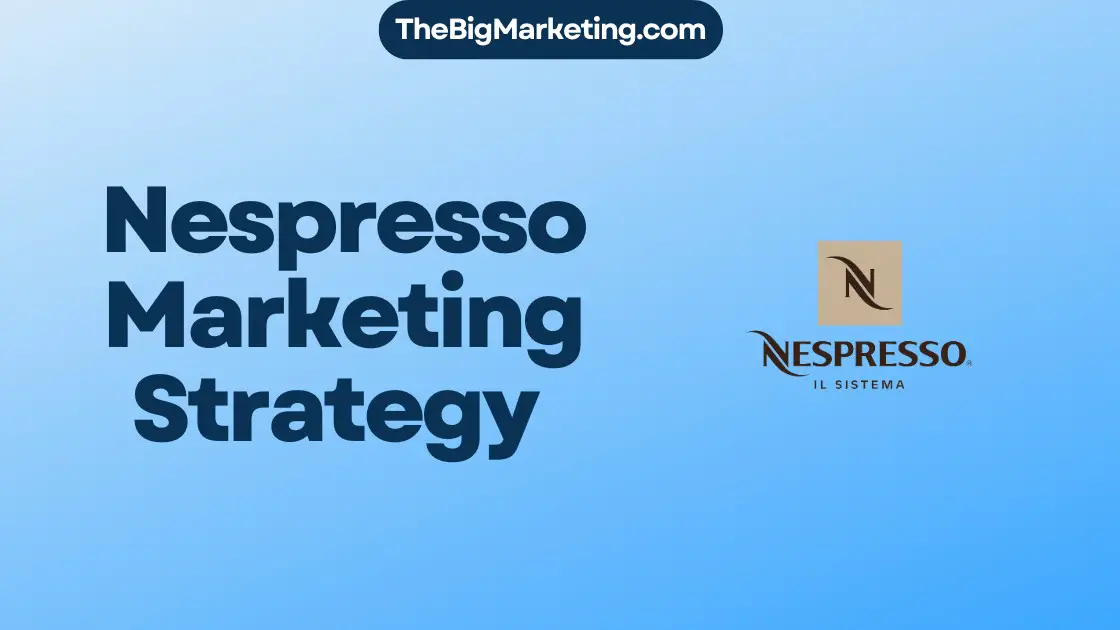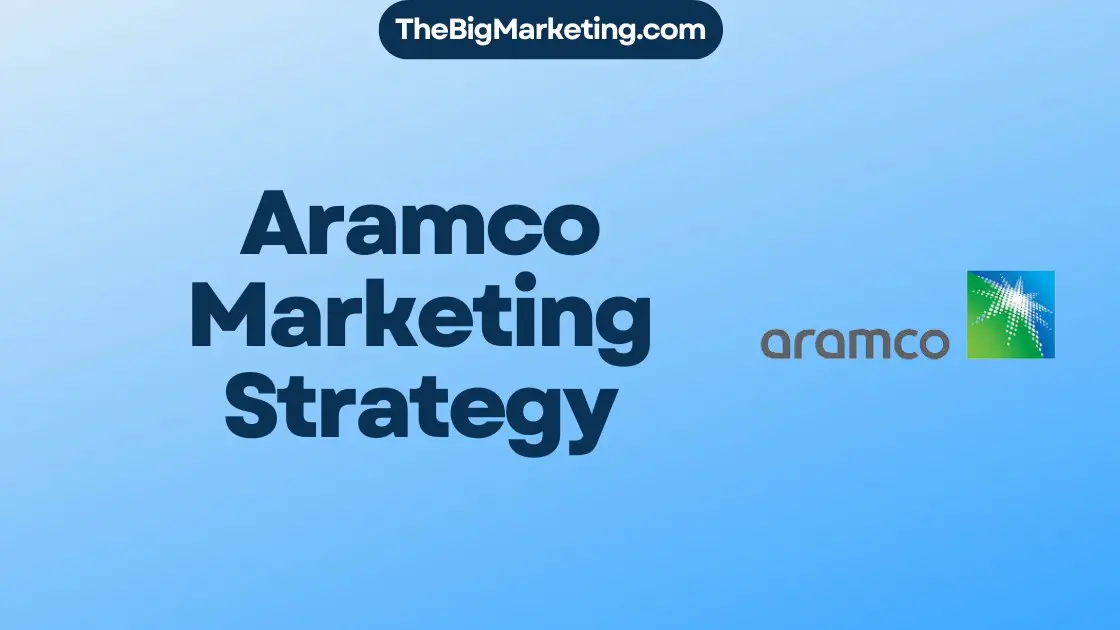White label marketing is a type of outsourcing where a company hires another company to create and execute a marketing campaign on their behalf. The end products of the campaign, such as website design, social media posts, and email newsletters, are then branded with the client’s name and logo. It is an effective way for businesses to expand their reach without investing in additional team members.
White label marketing services include social media marketing, search engine optimization, reputation management, pay-per-click advertising, content writing, web design, and content marketing.
Key Takeaways:
- White label marketing involves outsourcing marketing services to another company.
- The end products of the marketing campaign are branded with the client’s name and logo.
- White label marketing services include social media marketing, SEO, content writing, and more.
- It is a cost-effective way for businesses to expand their reach and maintain brand consistency.
- White label marketing is beneficial for startups, businesses offering marketing services, and those looking for fresh ideas and better results.
What is White Labeling?
White labeling is the practice of branding a product with your company’s name and logo instead of the manufacturer’s. It involves purchasing a product from another company and rebranding it as your own. White label products are generic products that are sold to multiple retailers, who then brand and price the product for their target market. Private label products, on the other hand, are sold exclusively through one retailer and tend to be more customized and expensive.
White labeling allows businesses to leverage existing products and services, saving time and resources on product development and production. By rebranding white label products, companies can establish their own brand identity and offer a wider range of options to their customers. This strategy is commonly employed in various industries, including retail, software, electronics, and personal care.
With white labeling, retailers can benefit from the economies of scale associated with generic products, while still maintaining control over branding and pricing. The ability to customize products and tailor them to specific target markets is a key advantage of private label products. Retailers can differentiate themselves from the competition by offering exclusive products that meet the specific needs and preferences of their customers.
The decision to use white label or private label products depends on various factors, including the target market, desired level of customization, and the resources available. Each approach offers unique advantages and considerations, and businesses must carefully evaluate their options to determine the best fit for their specific needs.
White Label vs. Private Label
| White Label | Private Label |
|---|---|
| Branded with retailer’s name and logo | Branded exclusively for one retailer |
| Sold to multiple retailers | Sold exclusively through one retailer |
| Generic products | Customized products |
| Lower cost, broader distribution | Higher cost, exclusive distribution |
When to Use White Labeling
White labeling can be a strategic solution in various business scenarios. It enables retailers to quickly expand their product offerings and enter new markets without the need for extensive product development or manufacturing capabilities. This approach is particularly beneficial for startups and small businesses looking to establish their brand presence and generate revenue quickly.
White labeling can also be advantageous for businesses that want to focus on their core competencies and outsource certain product lines or services. By utilizing white label products or services, companies can leverage the expertise and resources of other organizations, allowing them to concentrate on their areas of expertise and overall business growth.
Furthermore, white labeling can offer cost savings and increased profitability. Retailers can take advantage of economies of scale by purchasing generic products at lower costs and selling them at competitive prices. This approach allows businesses to increase profit margins while still offering quality products to their customers.
In summary, white labeling presents businesses with opportunities for branding, market expansion, cost optimization, and diversification. By strategically incorporating white label products into their offerings, companies can effectively meet customer demands, drive revenue, and enhance their overall competitive position.
Difference Between White Label and Private Label
When exploring the world of product distribution and branding, it’s essential to understand the key distinctions between white label and private label. While these terms are often used interchangeably, they refer to different strategies and approaches. Let’s delve into the dissimilarities to gain a better understanding of each.
White Label Products
White label products are generic items that are produced by one manufacturer and sold to multiple retailers. These products are then rebranded and marketed by the retailers under their own name and packaging. With white label products, the emphasis is on affordability and mass distribution to cater to various retailers and markets.
Private Label Products
In contrast, private label products are exclusively sold through one retailer. This means that the retailer has sole ownership of the product, and it is often more customized and tailored to their target audience. Private label products are typically associated with higher quality, premium pricing, and customization options that cater to the retailer’s specific branding.
It’s important to note that white label and private label products follow distinct distribution models. While white label products are mass-produced and made available to multiple retailers, private label products are distributed exclusively through one retailer.
White Label Marketing
In addition to product distribution, the term “white label” is also commonly used in the marketing industry. White label marketing refers to the practice of outsourcing marketing services to another company, who creates and executes marketing campaigns on behalf of a client. This allows businesses to leverage the expertise and resources of a marketing agency without the need to build an in-house marketing team.
Benefits of White Label Marketing
White label marketing offers several benefits for businesses. It allows them to save money by outsourcing their marketing to a white label provider instead of hiring an in-house team. It also provides access to a team of marketing experts, ensuring high-quality service and expertise. White label marketing services can help establish and maintain a consistent brand identity, save time for businesses by delegating marketing tasks, and provide scalability and flexibility in marketing efforts. It is particularly useful for startups, businesses looking to offer marketing services, businesses expanding into new markets, and businesses looking for fresh ideas and better results.
- Cost savings: By outsourcing marketing to a white label provider, businesses can save on the costs of hiring and maintaining an in-house marketing team.
- Access to marketing experts: White label marketing gives businesses access to a team of experienced marketing professionals who can provide high-quality service and expertise.
- Consistent brand identity: White label marketing services can help businesses establish and maintain a consistent brand identity across various marketing channels.
- Time-saving: Delegating marketing tasks to a white label provider frees up time for businesses to focus on their core activities.
- Scalability and flexibility: White label marketing allows businesses to easily scale their marketing efforts up or down according to their needs and market conditions.
Overall, white label marketing is a valuable solution for businesses looking to optimize their marketing strategies, offer marketing services, expand into new markets, or enhance their results with fresh ideas and expertise.
| Benefits of White Label Marketing |
|---|
| Cost savings |
| Access to marketing experts |
| Consistent brand identity |
| Time-saving |
| Scalability and flexibility |
Common White Label Marketing Services
White label marketing services encompass a range of digital marketing strategies. The most common services include:
- Social media marketing
- Search engine optimization
- Reputation management
- Pay-per-click advertising
- Content writing
- Web design
- Content marketing
Social media marketing focuses on developing and executing social media advertising strategies. It involves creating engaging content, managing social media accounts, and optimizing campaigns for maximum reach and engagement. Platforms like Facebook, Instagram, Twitter, and LinkedIn are commonly utilized for social media marketing.
Search engine optimization (SEO) aims to improve website visibility in search engine results pages. It involves optimizing website content, meta tags, and other on-page elements, as well as building high-quality backlinks to improve ranking and organic traffic. SEO helps businesses attract more targeted visitors and increase their online visibility.
Reputation management is crucial for businesses to proactively manage their online presence. It involves monitoring and responding to customer reviews and feedback, managing online ratings and rankings, and implementing strategies to maintain a positive online reputation. Reputation management helps businesses build trust and credibility among potential customers.
Pay-per-click (PPC) advertising involves displaying ads on search engines and websites. Using platforms like Google Ads and Bing Ads, businesses bid on keywords relevant to their target audience. When users search for those keywords or browse relevant websites, the ads are displayed. Businesses only pay when users click on their ads, making PPC a cost-effective advertising method.
Content writing plays a crucial role in digital marketing. It involves creating high-quality and engaging content for websites, blogs, social media, and email marketing campaigns. Content writers produce blog articles, product descriptions, email newsletters, social media posts, and other forms of content that educate, entertain, and engage the target audience.
Web design focuses on creating customized websites that are visually appealing, user-friendly, and optimized for lead generation. Web designers combine aesthetics with functionality to create websites that reflect the brand’s identity and effectively convert visitors into customers. They use various design elements, layouts, and technologies to create a seamless user experience.
Content marketing involves creating and distributing valuable and relevant content to attract and retain customers. It encompasses various forms of content such as blog articles, videos, infographics, whitepapers, and case studies. Content marketing aims to establish a brand as an authority in its industry and build long-term relationships with customers.
These white label marketing services are essential in today’s digital landscape. They help businesses establish a strong online presence, generate leads, increase brand awareness, and drive revenue. By partnering with a white label marketing agency, businesses can access these services without the need to develop in-house expertise.
| Marketing Service | Description |
|---|---|
| Social Media Marketing | Developing and executing social media advertising strategies |
| Search Engine Optimization | Improving website visibility in search engine results pages |
| Reputation Management | Managing and maintaining a positive online reputation |
| Pay-Per-Click Advertising | Displaying ads on search engines and websites |
| Content Writing | Creating high-quality and engaging content for websites and social media |
| Web Design | Creating visually appealing and user-friendly websites |
| Content Marketing | Creating and distributing valuable and relevant content |
When to Use White Label Marketing Services
White label marketing services can be beneficial in various scenarios. Here are some situations where businesses can consider utilizing white label marketing:
- Startups: Startups can quickly build their brand with white label marketing without investing in an in-house marketing team. By outsourcing their marketing needs to a white label provider, startups can save time and resources while still benefiting from professional marketing services.
- Design agencies and web development companies: Design agencies and web development companies can expand their service offerings by partnering with white label marketing companies. This allows them to provide comprehensive marketing solutions to their clients without the need to develop an in-house marketing team.
- Businesses expanding into new markets: When entering a new market, businesses can benefit from the local expertise provided by white label marketing agencies. These agencies have a deep understanding of the local market dynamics and can tailor marketing strategies to effectively target the new audience.
- Small businesses: Small businesses can compete with larger brands through white label digital marketing. By outsourcing their marketing efforts to a white label provider, small businesses can access high-quality marketing services at a fraction of the cost compared to hiring an in-house team.
- Businesses launching new products or services: White label marketing is a viable option for businesses launching new products or services. It allows them to leverage the expertise of a white label provider to create and execute strategic marketing campaigns that effectively introduce the new offering to the market.
- Businesses not seeing results from current marketing efforts: If a business’s current marketing efforts are not yielding the desired results, white label marketing services can provide a fresh perspective. The expertise and industry knowledge of white label providers can help identify areas for improvement and implement effective marketing strategies to drive better results.
- Established businesses seeking fresh ideas and growth strategies: Even established businesses can benefit from white label marketing services. By partnering with a white label provider, businesses can tap into new ideas, innovative strategies, and cutting-edge marketing techniques to support their growth and stay ahead of the competition.
White label marketing services offer businesses the opportunity to access professional marketing expertise, save costs, and drive effective results. Whether it’s a startup looking to establish its brand or an established business seeking growth, white label marketing can be a valuable solution to meet the unique marketing needs of different businesses.
Why Choose White Label Digital Marketing
White label digital marketing offers several advantages over traditional marketing approaches. By choosing white label digital marketing, businesses can benefit from:
- Focus on Core Competencies: Outsourcing marketing tasks to experts allows businesses to focus on their core competencies. This ensures that resources are allocated efficiently and that the company’s main strengths are maximized.
- Cost Savings: White label marketing eliminates the need for an in-house marketing team, resulting in significant cost savings. Businesses can access professional marketing services without the overhead costs of hiring and maintaining a dedicated team.
- Scalability: White label marketing agencies offer scalable solutions, allowing businesses to adjust their marketing efforts as needed. This flexibility ensures that marketing campaigns can adapt to changing business requirements and market conditions.
- Access to Latest Platforms and Features: Working with experienced marketing partners ensures that campaigns are built on the latest platforms and incorporate the newest features. This guarantees that businesses stay ahead of the competition and leverage the most effective marketing technologies.
- Guidance and Support: White label digital marketing services provide access to a team of experts who can provide guidance, support, and valuable insights. This enables businesses to optimize their marketing strategies, make data-driven decisions, and achieve better results.
We can see why white label digital marketing is becoming increasingly popular in the business world. It offers a strategic approach to marketing that combines expertise, cost-efficiency, scalability, and access to the latest tools and techniques. By partnering with a reputable white label marketing agency, businesses can leverage these advantages to achieve their marketing goals effectively.
| Advantages | Description |
|---|---|
| Focus on Core Competencies | Outsourcing marketing tasks allows businesses to focus on their main strengths and allocate resources efficiently. |
| Cost Savings | Eliminating the need for an in-house marketing team results in significant cost savings for businesses. |
| Scalability | White label marketing agencies offer scalable solutions, allowing businesses to adjust their marketing efforts as needed. |
| Access to Latest Platforms and Features | Working with experienced marketing partners ensures campaigns are built on the latest platforms and utilize the newest features. |
| Guidance and Support | White label digital marketing services provide access to a team of experts who can provide guidance, support, and valuable insights for optimizing marketing strategies. |
Examples of White Label Branding
White label branding is a common practice across various industries, offering businesses the opportunity to customize and rebrand products and services to suit their needs. Here are some notable examples of white label branding:
Software:
Companies like Mailchimp and Constant Contact provide white label solutions that can be tailored and rebranded by other businesses. These platforms allow companies to offer email marketing services under their own brand name, enhancing their product offerings and expanding their reach.
Grocery and Retail:
The grocery and retail industries often sell white label products, which are manufactured by third-party suppliers and sold under the retailer’s branding. This allows retailers to offer a wide range of products without the need for in-house manufacturing.
Electronics:
Electronics companies frequently white label their products for other brands, enabling them to extend their product lines and cater to different market segments. This practice allows smaller brands to leverage the reputation and expertise of established electronics manufacturers.
Web Hosting:
Web hosting companies offer white labeled hosting services, allowing resellers to brand the hosting services as their own. This enables web designers, agencies, and entrepreneurs to offer hosting services without the need for extensive infrastructure and technical expertise.
Financial Institutions:
Financial institutions engage in white labeling financial products and services, such as credit cards and loans. This allows them to provide a comprehensive range of offerings to their customers without the need to develop these products in-house.
Beauty and Personal Care:
Many beauty and personal care brands outsource the manufacturing of their products to third-party manufacturers who produce them as white label products. This enables brands to focus on marketing and brand building while utilizing the manufacturing expertise of specialized suppliers.
White Label Digital Marketing:
White label digital marketing services, such as those provided by That! Company, offer a range of marketing solutions that can be customized and branded under the client’s name. This allows businesses to offer high-quality marketing services without the need for an in-house marketing team.
As you can see, white label branding is a versatile strategy that is used by a variety of industries to enhance their product offerings, expand their reach, and leverage expertise from specialized providers.
Advantages and Disadvantages of White Label Products
White label products offer both advantages and disadvantages for businesses. By understanding these factors, companies can make informed decisions about utilizing white label products in their operations.
Advantages of White Label Products
- Expanded Product Lines: White label products allow businesses to quickly expand their product offerings without the need for extensive research and development. By partnering with a manufacturer or supplier, companies can access a wide range of ready-made products to meet customer demands.
- Large Contracts: White labeling enables businesses to secure large contracts by offering a diverse portfolio of products without the upfront costs associated with developing them in-house. This can lead to increased revenue and market share.
- Discounted Sales: Purchasing white label products in bulk often results in discounted prices, offering businesses the opportunity to improve profit margins and compete more effectively in the market.
- High-Quality Products: White label manufacturers and suppliers often have extensive experience and expertise in product development and production. This ensures that businesses can offer high-quality products to their customers without investing in expensive manufacturing infrastructure.
Disadvantages of White Label Products
- Copycatting: White label products may lack unique branding and features, making it easier for competitors to imitate and offer similar products. This can lead to increased competition and reduced market differentiation.
- Monopsony: Businesses relying heavily on white label products may become overly dependent on a single manufacturer or supplier. This creates the risk of price increases, quality issues, or disruptions in the supply chain, impacting product availability and profitability.
- Barriers to Entry for New Firms: The availability of white label products can make it challenging for new entrants to establish themselves in the market. Established brands with white label products may already have established distribution channels and customer loyalty.
Businesses should carefully weigh the advantages and disadvantages of white label products before incorporating them into their product portfolio. While white label products can offer cost savings, access to a variety of products, and high-quality offerings, they also come with potential risks and challenges. By conducting thorough market research and considering their specific business needs, companies can make informed decisions about utilizing white label products in their operations.
Benefits of Front-Facing White Label Solutions
Front-facing white label solutions offer numerous benefits over back-end solutions. Businesses can leverage these solutions to provide direct communication and achieve quicker response times, ultimately enhancing the customer experience. By partnering with white label providers, businesses can focus on their core competencies while still accessing the expertise of these providers. This allows for more efficient operations and better overall results.
One of the primary advantages of front-facing white label solutions is the ability to establish direct communication channels with customers. Unlike back-end solutions where interactions are mediated, front-facing solutions enable businesses to engage with their customers directly. This direct line of communication facilitates better understanding of customer needs, preferences, and feedback, leading to improved customer satisfaction.
Quicker response times are another benefit of front-facing white label solutions. Without the need for intermediaries, businesses can respond to customer inquiries, requests, and issues in a more timely manner. This not only enhances customer satisfaction but also helps build a reputation for excellent customer service.
Front-facing white label solutions also allow businesses to stay focused on their core competencies. By outsourcing certain functions to white label providers, businesses can allocate their resources more efficiently and concentrate on areas where they excel. This leads to better overall performance and productivity.
Furthermore, front-facing white label solutions streamline the process by reducing the layers of communication. This leads to improved efficiency and faster decision-making, which translates to better results for businesses. The streamlined process also minimizes the potential for miscommunication or delays, ensuring a smoother customer experience.
In summary, front-facing white label solutions offer multiple advantages. They enable direct communication with customers, significantly reduce response times, allow businesses to focus on their core competencies, and streamline the overall process. By leveraging these benefits, businesses can enhance the customer experience, improve operational efficiency, and achieve better results.
Working with That! Company for White Label Digital Marketing
When it comes to white label digital marketing, partnering with the right agency can make all the difference. That! Company specializes in providing front-facing white label digital marketing services, offering a seamless experience for clients under their own brand name.
With That! Company, you can expect personalized service that caters to the unique needs and goals of your clients. They prioritize transparency, ensuring you are always kept informed about the progress and performance of your marketing campaigns.
That! Company offers a comprehensive range of white label digital marketing services to meet the diverse needs of your clients. From white label SEO and PPC management to social media marketing, website design, and reputation management, they have all the bases covered.
Their approach is centered around enhancing the customer experience. By maintaining your brand identity throughout the process, That! Company ensures that your clients receive a consistent and high-quality service that aligns seamlessly with your business.
When working with That! Company, you can trust that you’re partnering with a reputable agency that has a proven track record of success. Their team of experts is dedicated to delivering results and helping your clients achieve their marketing goals.
Benefits of working with That! Company:
- Personalized service tailored to your clients’ needs
- Transparency and regular updates on campaign performance
- Comprehensive range of white label digital marketing services
- Maintaining your brand identity throughout the process
- A trusted agency with a track record of success
By partnering with That! Company for white label digital marketing, you can confidently expand your service offerings without compromising on quality. Let their expertise and dedication to customer satisfaction enhance your business and drive success for your clients.
Conclusion
White label marketing is a valuable solution for businesses seeking to expand their reach, offer comprehensive marketing services, compete with larger brands, and optimize their marketing strategies. By partnering with a reputable white label marketing agency like That! Company, businesses can leverage the advantages of this approach. Besides cost savings, scalability, and access to expertise, white label marketing provides flexibility and personalized service.
In the modern business landscape, where competition is fierce and staying ahead of the curve is crucial, white label marketing emerges as an effective strategy. It allows businesses to focus on their core competencies while entrusting their marketing needs to professionals who specialize in creating and executing successful marketing campaigns.
By choosing white label marketing, businesses can enjoy front-facing solutions tailored to their brand identity, transparent communication, and timely feedback. This approach ensures improved customer satisfaction, as clients receive high-quality service delivered under their own brand name. With white label marketing, businesses can meet their marketing goals more efficiently and effectively, enabling growth and success in today’s dynamic marketplace.




